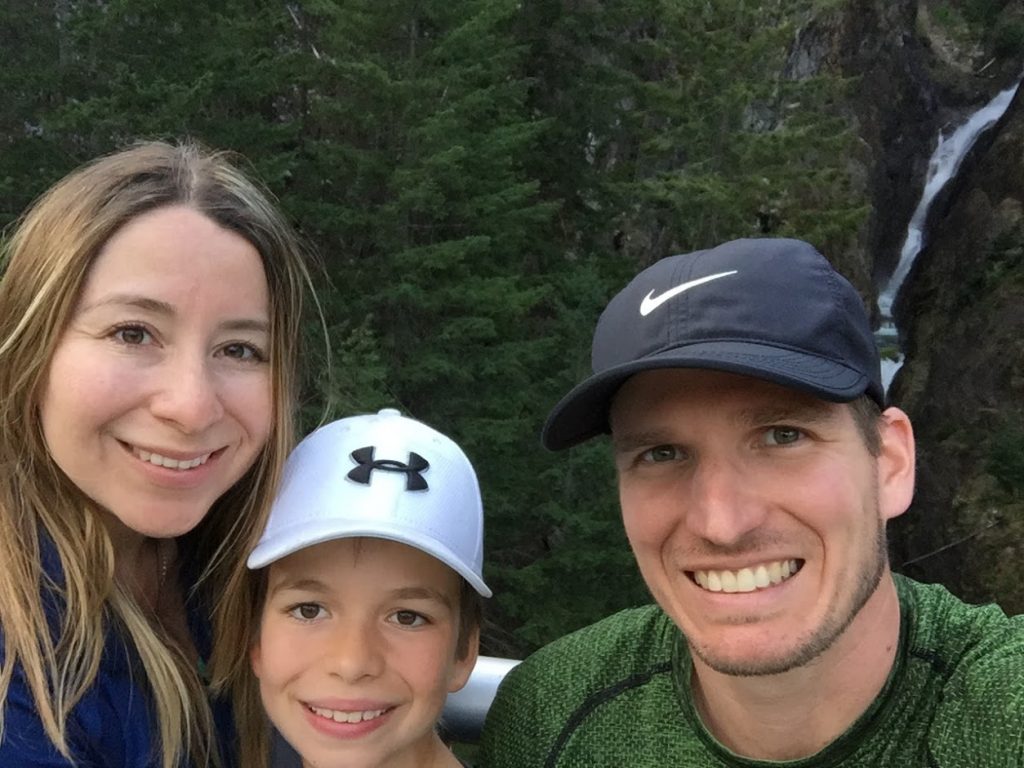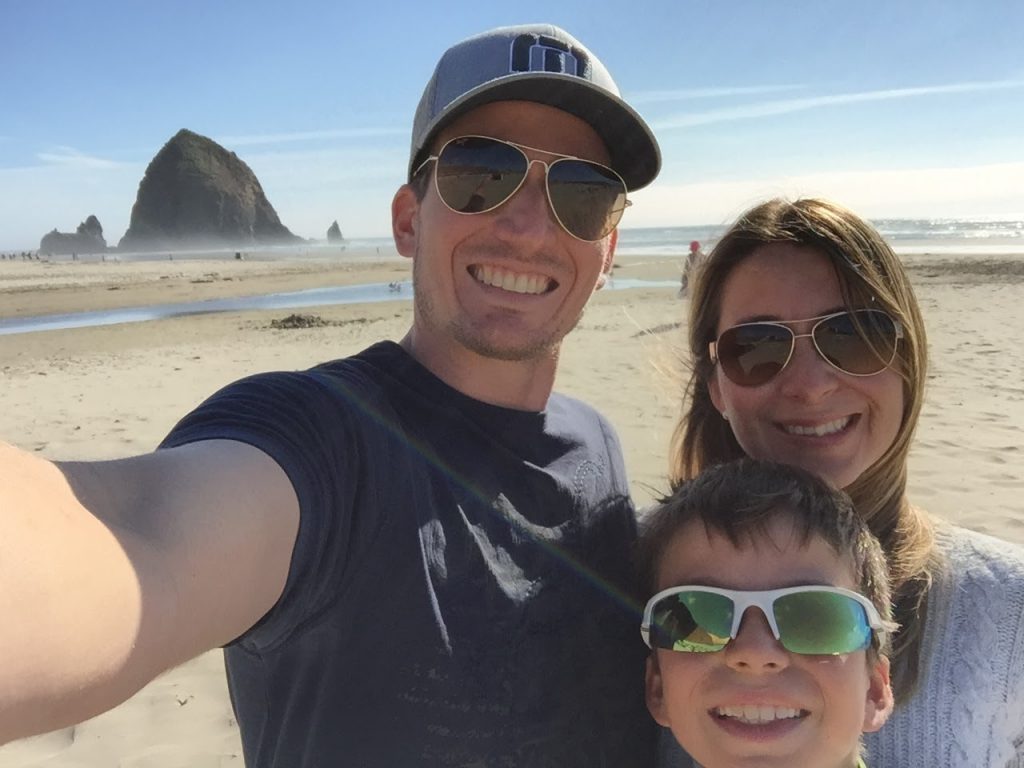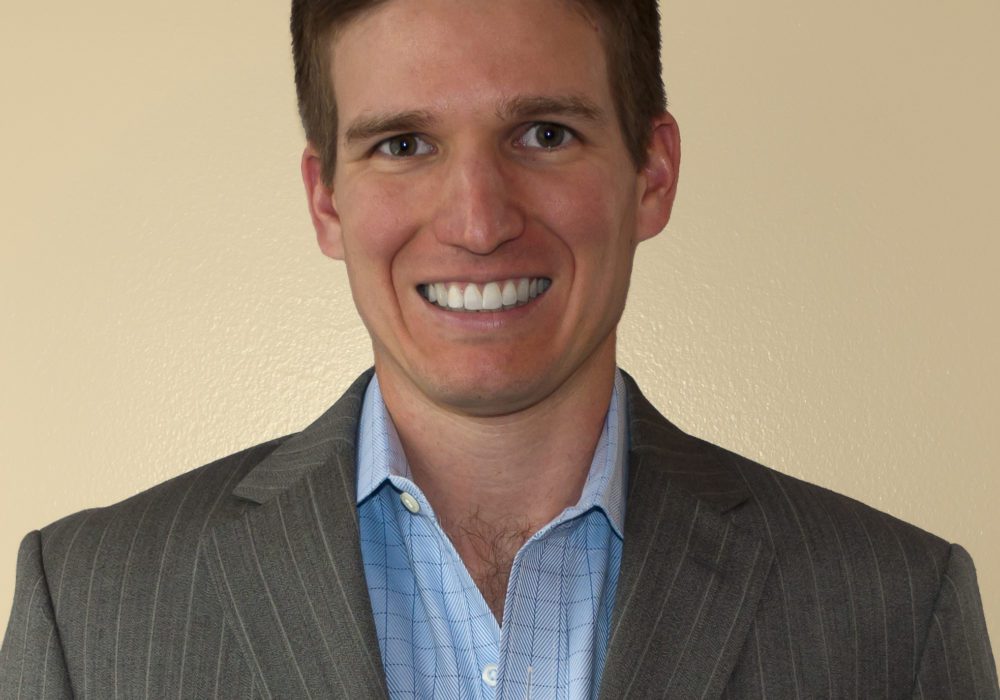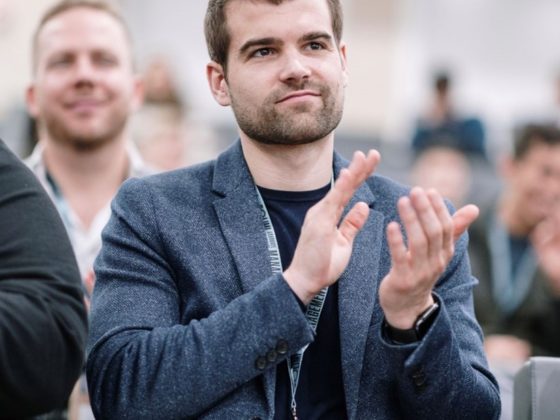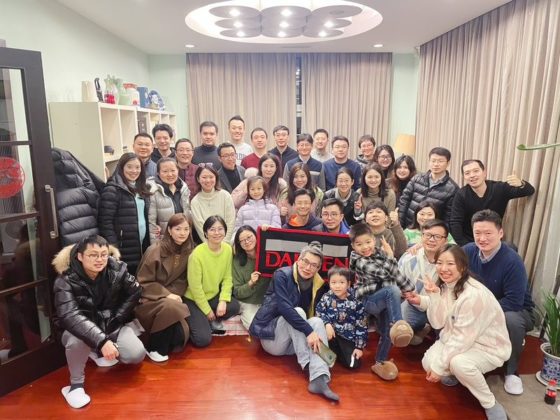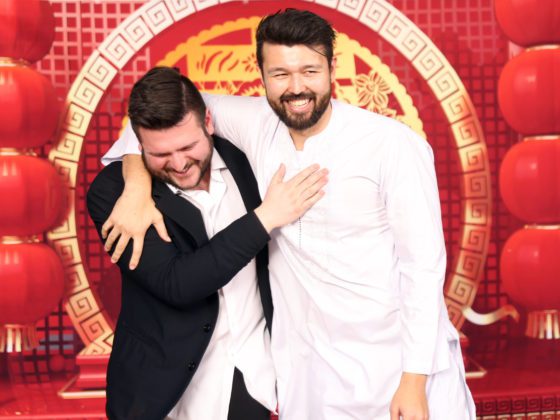Greg Little (MBA ‘11), Director of Marketing at Adaptive Biotechnologies, served as the President of Darden’s International Business Society when he founded Darden’s international blog. The blog, Global Voices of Darden, which continues to serve as a forum for discussion on global events and topics for the Darden community, has now grown to include over 250 articles. While Greg currently resides in Seattle, he previously lived in Chile and China and has traveled extensively throughout Latin America, Europe and Asia.
What began your interest in working and traveling globally?
I have always been interested in international business – I grew up in California in the Silicon Valley during the initial tech boom and saw a big influx of diversity into the San Francisco Bay Area, so thinking globally has always been part of who I am. Since leaving Darden, I have led business across South America, Europe and Asia. It has been fun to interact and broaden my network to all parts of the world – I love getting together with colleagues from Latin America, Europe, and Asia whenever I can! It’s interesting to me to see that the culture of one company can vary across countries.
Sadly, even though the diversity in U.S. business is increasing, the type of constructive cross-cultural interaction that breeds empathy and understanding seems to be decreasing. As business culture here evolves, lines are blurring between the office and home due to increasing work demands; work hours are up, and so it’s harder to justify time away from home to establish and build relationships with colleagues outside the office. I think that having colleagues in and from around the world enriches business and ultimately provides great opportunities to learn different ways of approaching and solving problems.
Why did you decide to run for the role of President of the International Business Society at Darden? What were your motivations and hopes for Global Voices of Darden?
International business has been a passion of mine since before my time at Darden, and since graduating from Darden I’ve taken roles with a strong international slant to them. To me, global business is exciting, interesting and requires one to develop a lot of emotional intelligence (EQ), which is critical to leading cross-culturally. Growing up in the U.S., I think it is easy to buy into the fact that everything we do here is the best way of doing things. All of those who have spent considerable time in another country realize that each culture approaches problems differently, and it is fantastic to see how these different approaches also lead to solutions, often in equally effective and (sometimes) even better ways. I have long felt that if you have the right attitude, cultural immersion can allow you to put together a best practice toolkit for approaching problems.
My passion and prior experience living and working in South America led me to want to get more involved with Darden’s International Business Society (IBS, now called Global Business and Culture Club). When I took the helm of the IBS, it seemed like the primary purpose of the organization had turned into simply running the International Food Festival. While the festival is an amazing event at Darden that celebrates unique food and customs around the world, I felt like the initial purpose of the Society as an umbrella organization to serve and unify the various regional affinity clubs (e.g. LASA, DABO, ES, ABCD, DSAS) towards increasing interest in global business had been lost. I wanted the Society to return to its roots and begin to broaden the membership to more than just international students.
My initial idea for creating the blog was for it to serve as a forum for discussion on all things international business. This was before Darden announced the global executive MBA format and outside of our global cases the discussion of international business nuances and considerations was not a common occurrence among the student body. Darden did have Global Business Experiences (now called Darden Worldwide Courses), but beyond the sharing of photos and fun, the learnings from the trips didn’t seem to make their way to the rest of the student community. I figured the blog would be a great way for those students to highlight those experiences and discuss their learnings alongside a forum for international students to bring their perspectives and for faculty to add an international slant to their discussions. I had no idea where the blog would go or how it would evolve, but I went to Peter Rodriguez, Darden’s former Senior Associate Dean for degree programs and Chief Diversity Officer, with the idea and he bought in pretty easily. I asked him to write an opening piece alongside mine, introducing the Global Voices of Darden blog to the Darden community.
What have you been up to since graduating from Darden?
Currently, I lead physician marketing for Adaptive Biotechnologies, a venture-backed unicorn company with over 200 employees. We do DNA sequencing of the immune system – by identifying and counting specific cancer cells, and adding additional contextual data, we can help physicians and patients understand how effective their treatment has been and track their precise disease levels. It is so leading edge that the FDA has announced plans to evolve how they treat companies like ours that are not necessarily pharmaceutical nor diagnostic but provide information that can potentially improve patient care.
Before attending Darden, I worked for a startup, Genia Technologies, that was developing a novel DNA sequencing technology. Being part of a seed stage Silicon Valley start-up like Genia allowed me to work on business and R&D projects, which was fascinating, and be part of something that was acquired by a large company (Roche). I continued in the medical industry after graduating from Darden where I worked for a global chemistry technology company, Celanese, leading market development work that led to patents. From there I joined Becton Dickinson (BD Medical), where I led various product portfolios of increasing size, and it was great to get back into globally-focused roles. That job put me on the path to where I am now, applying my global marketing training and experience to building markets with cutting-edge technology at Adaptive.
Which class at Darden had the most impact on you?
I remember Darden alumni saying that LO (Leadership Operations) would be one of the most critical classes I would take at Darden, and it was true. The course taught the importance of emotional intelligence, the necessity to empathize with people, and how important soft skills are to be a successful leader. While all of these things are critical for every leader to be maximally effective, they are especially important in global business when you are interacting with people from different countries. The further you move up in an organization the more exposure you have to global business, and the more relevant EQ becomes. I didn’t have a full appreciation for its importance until I left Darden and increased my professional responsibilities – now, analyzing effective leadership has become a passion of mine.
What motivates you? What has shaped your perspective in life?
I live everyday with the perspective that I can learn something from every person I meet. This ideal has been crucial in shaping how I grow as a person and in my professional career; I think an attitude like this can instill both humility and curiosity. All of us play many roles in our lives—inside and outside work—and I think you get a lot more from life when you are in the frame of mind that everyone can teach you something because it means that everyone could be better than you at, at least, one thing. If you take an authoritarian approach to leadership, you will miss out on learning from people all around you.
Where do you see yourself in ten years?
I definitely see myself living abroad again, and leading a global business; in fact, my wife and I have talked about moving to France at some point in the future. If I am not living in another country, I think global travel will have to be a big part of what I do. There is so much we can learn from other people in other countries and that they can learn from us. To solve the global challenges of tomorrow, we need to work together across political and geographic lines to find solutions that benefit everyone, not just those fortunate enough to live in the developed world. Business leadership plays an enormously important role in finding and propagating those solutions, and I want to be a part of making the world better for everyone.
